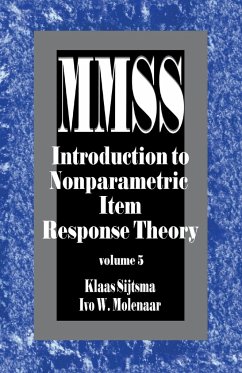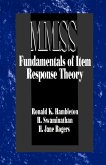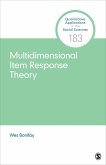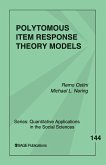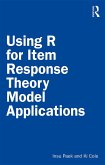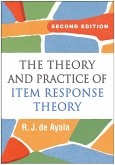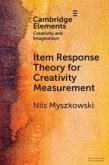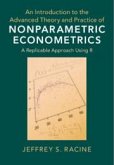Introduction to Nonparametric Item Response Theory addresses an important and complex topic in test development in a manner that is precise and accurate, yet accessible to students and practitioners with a modest background in classical test theory. It also provides an excellent introduction to nonparametric IRT models for the more mathematically sophisticated student or researcher who will welcome the extensive additonal reading lists that are found at the conclusion of each chapter.
This book introduces social and behavioral science students and researchers to the theory and practice of the highly powerful methods of nonparametric item response theory (IRT). Anyone who uses or constructs tests or questionnaires for measuring abilities, achievements, personality traits, attitudes, or opinions will find nonparametric IRT useful for designing and improving such measurements. The authors show how the broadness of the nonparametric item response models allows them to fit many data sets and remain powerful enough for implying useful measurement properties, such as the ordering of persons using the simple total score (number-correct for dichotomous item tests and sum of rating scale score for polytomous item tests) and the ordering of the items using the item means.
This book introduces social and behavioral science students and researchers to the theory and practice of the highly powerful methods of nonparametric item response theory (IRT). Anyone who uses or constructs tests or questionnaires for measuring abilities, achievements, personality traits, attitudes, or opinions will find nonparametric IRT useful for designing and improving such measurements. The authors show how the broadness of the nonparametric item response models allows them to fit many data sets and remain powerful enough for implying useful measurement properties, such as the ordering of persons using the simple total score (number-correct for dichotomous item tests and sum of rating scale score for polytomous item tests) and the ordering of the items using the item means.

